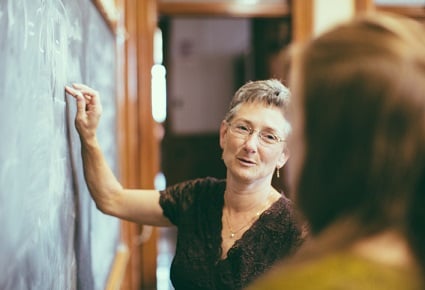Is it time to rethink teacher workloads?

What we are currently doing to reinstate the status of teaching isn’t working. Only 12% of the over 2100 teachers surveyed in the 2018 Happy School - Status of Teaching survey felt the status of teaching had increased in the past 5 years (down even further than the 2016 result of 19%).
The headline statistics are alarming and reflect a continuing slide in the status of the profession, even from within.
- 61% of teachers believe the status of the profession has declined in the past 5 years (was 47% in 2016)
- 66% of teachers indicated they have thought about leaving the profession in the past 12 months (increased from 60% in 2016)
- 50% of teachers report working more than 50 hours per week (up from 48% in 2016)
- Only 42% of teachers said YES they plan to be teaching in 5 years (down from 46% in 2016)
The workload continues to ramp up. This year over 90% of respondents said their workload had increased in the past 12 months. This is on top of the 2016 figure where 88% felt the workload had increased in that 12-month period.
This perception is supported by qualitative data from a recent research project, Teaching and Learning – Review of Workload, commissioned by the NSW Teachers Federation and undertaken by Sydney University Business School and School of Education and Social Work. This study confirmed there was “a surprising uniformity in responses in relation to high hours of work and administrative sources of workload”, even accounting for school size, type and diversity. The project reported an increase in workload over the past five years, which when coupled with perceived conflicting demands contributed to low morale or stress.
Staff morale appears to have dropped even further. Teachers are generally a fairly optimistic lot. Even with the concerns about workload and increasing administrative demands, only 29% rated morale in their school as below average. However, this is an increase from 2016 where the level was only 21%.
According to the survey, the 3 BIGGEST factors that contribute to stress continue to be:-
- Workload 80% (was 78%)
- Student Behaviour 59% (was 55%) and
- Parent Behaviour 48% (was 41%)
A recent study of promoting the teaching profession, commissioned by the Queensland College of Teachers (Bahr, Graham, Ferreira, Lloyd & Waters, 2018), identified “adverse perceptions of task demands (working conditions) that are instrumental in teacher turnover and attrition. These include: workload (the number of annual working hours), likelihood of working in disruptive classrooms and availability of support staff”.
Lack of Respect (43% was 37%) is identified as the number 4 factor in contributing to teacher stress in the 2018 Happy School Status of Teaching survey. This factor comes in much higher than the much publicised debate on NAPLAN (National testing) which was listed as the 8th highest factor, out of nine (22% of respondents on both 2016 and 2018). Leading educator Steve Francis argues that it is this respect for teaching as a profession that needs to be addressed.
“Staff in schools are placed in a very significant position of trust by our communities. We are trusted to look after, nurture and prepare for complex futures, the most precious, special and significant thing in almost ALL parents lives….their children. For the vast majority of parents, their children are more precious, special and important than anything they own, including their house and their car. Yet many teachers are reporting that a lack of respect is a significant factor contributing to their stress.”
The highest motivators reported by the teachers in 2016 continue to be the highest motivators in 2018. They were:-
- Satisfaction of contributing to student success
- Work environment and
- Feeling part of a team
The least important motivators were also unchanged
- Work hours
- Holidays and
- Pay
Alarmingly the number of teachers who would recommend teaching as a profession to their own son or daughter has also fallen. Only 19% of teachers said they would recommend the profession (down from 21% in 2016). The number who said “NO, they would not recommend becoming a teacher” rose from 43% to 45%.
If teachers wouldn’t recommend the profession, who would?


